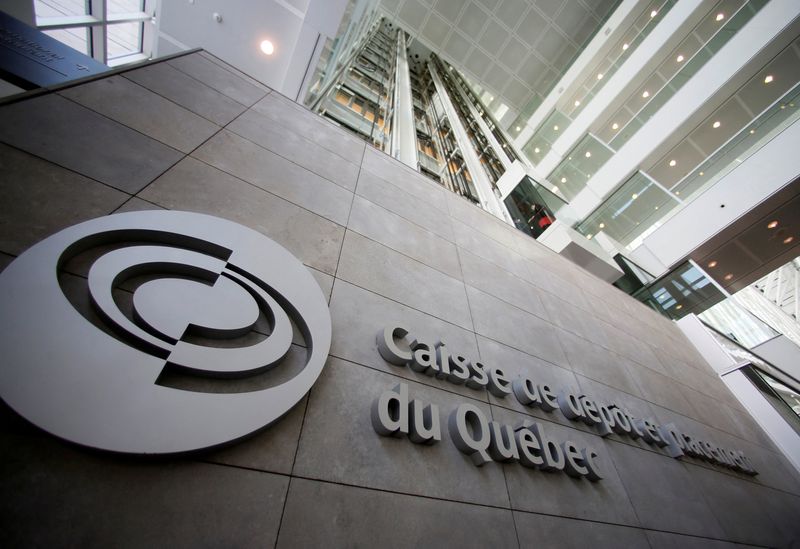By Divya Rajagopal
TORONTO (Reuters) - Canada's second largest pension fund Caisse de dépôt et placement du Québec sees opportunities in global fixed income assets after a recent sell-off, and expects global markets to stabilize in the first half of 2023, a top executive said.
"Fixed income assets are definitely more attractive than they were couple of months ago," Caisse's Executive Vice President Vincent Delisle said in an interview on Wednesday.
Caisse, which oversees about C$391.6 billion ($285 billion) in assets, says it sees opportunities in private credit, where where non-banking institutions provide loans to companies.
It plans to continue its push into global fixed income markets, where yields in some pockets have nearly doubled to 7%from 4% last year, while U.S. Treasury bond yields have jumped from zero percent to 4%, said Delisle, who is also head of Caisse's fixed income unit.
"We think fixed income also will catch back its safe haven status when we get a harder landing or global recession in 2023," he said.
Global bond markets have this year witnessed their worst sell-off since 1949 due to hawkish central banks, according to a report by Bank of America (NYSE:BAC) in September. Delisle expects bond markets to settle down before stock markets do.
Bond markets suffered a further blow when the British government announced tax cuts last month that were later reversed, leading to a global sell-off of gilts.
Caisse does not have significant exposure to UK and Europe debt markets but is closely watching political instability in UK as it affects its defensive sectors such as currencies, Delisle said.
The current source of discomfort for the markets is central banks fighting inflation, and for the markets to calm down it was imperative to see friendlier central banks, he said.
"To get friendlier central banks, inflation needs to come down and for inflation to come down the growth needs to slow down dramatically," Delisle said.
Delisle is betting that Caisse's diversified portfolio will help it weather the volatility.
About 30% of Caisse's total investments are in fixed income, while public equities make up 28% and private equity accounts for 20% of its investment portfolio. The rest is made up of real estate and infrastructure investments.
The fund reported a negative return of 7.9% in the quarter ending June 2022, with fixed income falling 13% - the steepest fall among its portfolios.

CPP Investments, Canada's largest pension fund, said last week it was seeking bargains after recent market declines.
($1 = 1.3761 Canadian dollars)